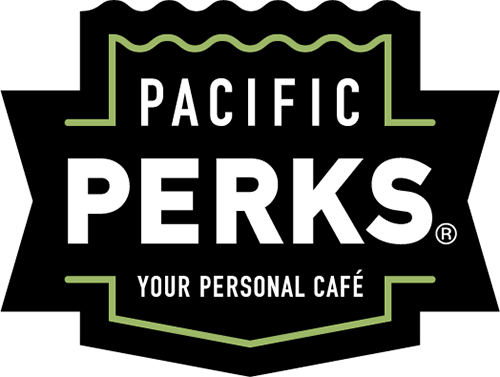Managing the Fees of Merchant Services & the Headaches of Account Receivables.
In the world of payment processing, there are a lot of things to consider and so much has changed over the last few years. Companies have to balance the cost of credit card fees and getting paid fast, versus taking payment in the form of a check/cash that can lead to past due invoices, affect cash flow and risk of theft.
Five years ago, I was having a meeting with our merchant services vendor to see what the simplest and most cost effective way to process payments for our company was. In our business, Pacific Perks Coffee, transactions are business to business and not point of sale. Simply, we charge a three to five figure amount based on the event. So for us, we take payment in the form of cash (very rarely anymore), check or credit card.
Our vendor mentioned, “You know there is a way to NOT have to pay any fees.” I am listening! It was to charge the merchant services fee to the client, resulting in no fee to us as a company. I cringed…. I felt that was the “cost of doing business” and wasn’t ready to be one of “those” companies that nickel and dime you.
As the years have gone by, more and more companies are looking for ways to save money and reduce the cost of business. The thought of passing credit card fees to the client can become something to consider. Especially with the pandemic and recent inflation, finding ways to cut costs is crucial to staying competitive and healthy.
Here are things to consider in B2B transactions.
- Cash is always good, but we rarely get it. There are no fees, but time is spent on managing accounts receivable. Also, often companies worry about it being too easy for money to disappear. At resorts, many times cash is not an option to avoid the disappearance of money and ease for guests.
- Check – no fees, but again you have to manage your accounts receivable to make sure you are receiving the payments in a timely manner. Thus, time and cash flow are a factor! Some companies take 30-45 days to pay an invoice. If you are a small business that can be a big concern.
- Credit Card – There is a fee, but your money is in the bank quickly (1 – 3 days). The typical credit card processing fee ranges from about 1.3% to 3.5% plus the payment processor’s cut, which varies depending on the card processor and plan you choose. To accept credit card payments, merchants must pay interchange fees, assessment fees, and processing fees. These fees go to the card’s issuing bank, the card’s payment network, and the payment processor. Payment processing fees are the only negotiable credit card transaction fees. American Express cards have the highest average fees, while Visa tends to be the lowest. Click the link above to learn more about merchant servicing fees.
These fees fluctuate based on each different card a client uses. One rate if the client swipes it, another if the client doesn’t, a rate for reward cards versus a regular credit card or a debit card. It is hard to know if you are being charged the right amount. Have you ever looked at a statement? It can be mind boggling!
Nothing against merchant services vendors, these companies allow money to flow into your bank account quickly. There are some good ones out there and not so good ones. Sometimes it is hard to know the difference. But the benefit is TIME and NO ACCOUNTS RECEIVABLE issues. You aren’t paying employees to email and/or call up clients and ask them to “please pay us”. In our line of business, often there is a change in client ownership, which leads to chasing down the new owner which can take weeks if not months. Time and headaches are saved by processing payments by credit cards.
Pacific Perks hasn’t made a straight across rule that a 3% fee is added to all of our clients paying by credit card, however, we have made it a conversation with our clients if their invoice is on the larger side.
- For large invoices, we request check payment. Most clients are fine with that.
- If that is not an option, clients approached us and asked to add an extra 3% to their invoice to cover the fees. These clients get it and are true partners in business!
Here are a few things you can do to help your company with cost:
- Call your merchant services company and negotiate your rates. Find out the cheapest way to process credit card payments. Is it to have the client swipe the card or to swipe the card internally?
- Request check payment as much as possible.
- Set the automatic reminder if you accounting system (we use Quickbooks Online) to reminder invoices if they have not been paid by a certain date.
- Attach your company W-9 to every invoice. This can be done by email or in QB. In QB, there is an attachment option in the invoice, so the invoice and W-9 are emailed together. This stops the delay of the accounting department holding your payment because the W-9 for your company is not on file.
- Get the contact information in the accounting department for the clients. That way you can go straight there if you have any issues in getting paid.
Money is evolving and we have seen new forms of payment coming into the market. I would love to hear what other companies are doing – What works for you? What hasn’t worked? How to keep accounts receivable simple and reasonable. Please email me at natalie@pacificperkscoffee.com to share how you are navigating payment processing.

